The 20 Best Medical Schools in the US (T20): Acceptance Rates, MCAT Scores, & GPA
Discover the top T20 medical schools in the U.S., including acceptance rates, MCAT scores, and GPA requirements. Find the best fit for your medical career.

By Krysta F.
Your Favorite Med School Coach's Favorite Med School Coach
Posted January 27, 2026

Join a free event
Learn from top coaches and industry experts in live, interactive sessions you can join for free.
Table of Contents
Are you considering a career in medicine? If so, you’ve probably heard about the "T20 medical schools". The top 20 medical schools in the United States, known for their high standards, world-class research opportunities, and prestigious faculty. Getting into one of these schools is a competitive endeavor, and understanding the admissions process, average test scores, and GPA requirements can help you better prepare for the medical school application journey.
Over the last five years, I have worked with hundreds of students to pursue their career ambitions, with a focus on working with students in the sciences in applying to medical school (DO & MD), PA school, dental school, etc. Here, I’ve included some of the insights I’ve gained during that time to give you a comprehensive guide to T20 medical schools. From program details to admission requirements to alumni networks, class profiles, and more, it’s all here!
Note: These elite programs require outstanding academic performance, including top GPAs and MCAT scores, as well as a commitment to the AAMC Competencies. In addition to your stats, it’s important that you can make meaning of, and effectively communicate about, the experiences you’ve had as you’ve prepared for this next step in the process.
What Are the Top 20 Medical Schools in the US?
As I mentioned, T20 medical schools refer to the top 20 medical schools in the United States, based on various ranking systems, including the US News and World Report. These top-ranked, prestigious medical schools are known for their excellence in medical education, scientific research, and clinical practice.
If you're aiming for the highest levels of training in medicine, these programs should be at the top of your list. Beyond prestige, these schools offer tight-knit communities, meaningful mentorship, and opportunities to make a real impact in healthcare.
1. Harvard Medical School

Founded in 1782, Harvard Medical School is widely regarded as the #1 medical school in the US, and it lives up to the reputation. Students have access to world-class hospitals, groundbreaking research, and deep community partnerships throughout Boston. The admissions bar is high: most accepted students have near-perfect academic records, with MCATs around 520+ and GPAs close to 3.9 or above.
Harvard Medical School’s acceptance rate is 3.2%.
But numbers don’t tell the whole story. Harvard offers two distinct tracks (Pathways and HST), countless research opportunities, and a strong emphasis on leadership and service. It’s a top choice for medical students looking to combine clinical excellence with innovation and global impact.
Class Profile – Harvard Medical School (Entering Class of 2025)
- Average GPA: 3.9
- Average MCAT Score: 520.48
- Section Averages:
- BBFL 130.38
- CARS 128.82
- CPBS 130.28
- PSBB 130.99
- Total Applicants: 6,856
- Section Averages:
- Interviews Conducted: 716
For more information on the class profile, see Harvard Medical School’s official report.
Demographics
The incoming class at Harvard Medical School reflects a diverse range of backgrounds and experiences. By gender, the cohort is 57% women, 42% male, and 1% identifying with another gender identity. Additionally, 14% of students are from groups underrepresented in medicine. Academically and geographically, students come from 62 different colleges across 31 U.S. states and 9 countries. Ages range from 21 to 31, with 72% of students holding undergraduate degrees in science-related fields.
The average class size at Harvard Medical School is 165 students, with 135 students pursuing the Pathways MD track, 30 students pursuing the HST (Health Sciences and Technology) track, and 15 students pursuing the MD-PhD.
2. Johns Hopkins University School of Medicine

Founded with a mission of advancing both patient care and medical discovery, Johns Hopkins University School of Medicine is one of the most respected institutions in the country. Its teaching hospital, Johns Hopkins Hospital, is world-renowned and the birthplace of several specialties, including neurosurgery and cardiac surgery. The school is known for its strong research emphasis, interdisciplinary education, and commitment to patient-centered care.
Johns Hopkins School of Medicine’s acceptance rate is 5.62%.
Admissions are highly selective, with most admitted students holding exceptional academic records. The school’s reputation for innovation and leadership in medicine makes it a top destination for applicants pursuing both clinical excellence and research opportunities.
Class Profile – Johns Hopkins School of Medicine (Class of 2028)
- Median GPA: 3.94
- Average MCAT Score: 520
- Total Applicants: 4,409
- Class Size: 129 (includes both MD and MD-PhD students)
For more information on the class profile, see Johns Hopkins’ official report.
Demographics
The incoming class at Johns Hopkins reflects a diverse mix of experiences and identities. The cohort is 62% women, 36% men, and 2% identifying with another gender identity. 19% of students are from groups underrepresented in medicine, 13% are first-generation college students, and 2% have military backgrounds. Students come from 62 undergraduate institutions across 29 U.S. states and 2 countries.
3. University of Pennsylvania Perelman School of Medicine
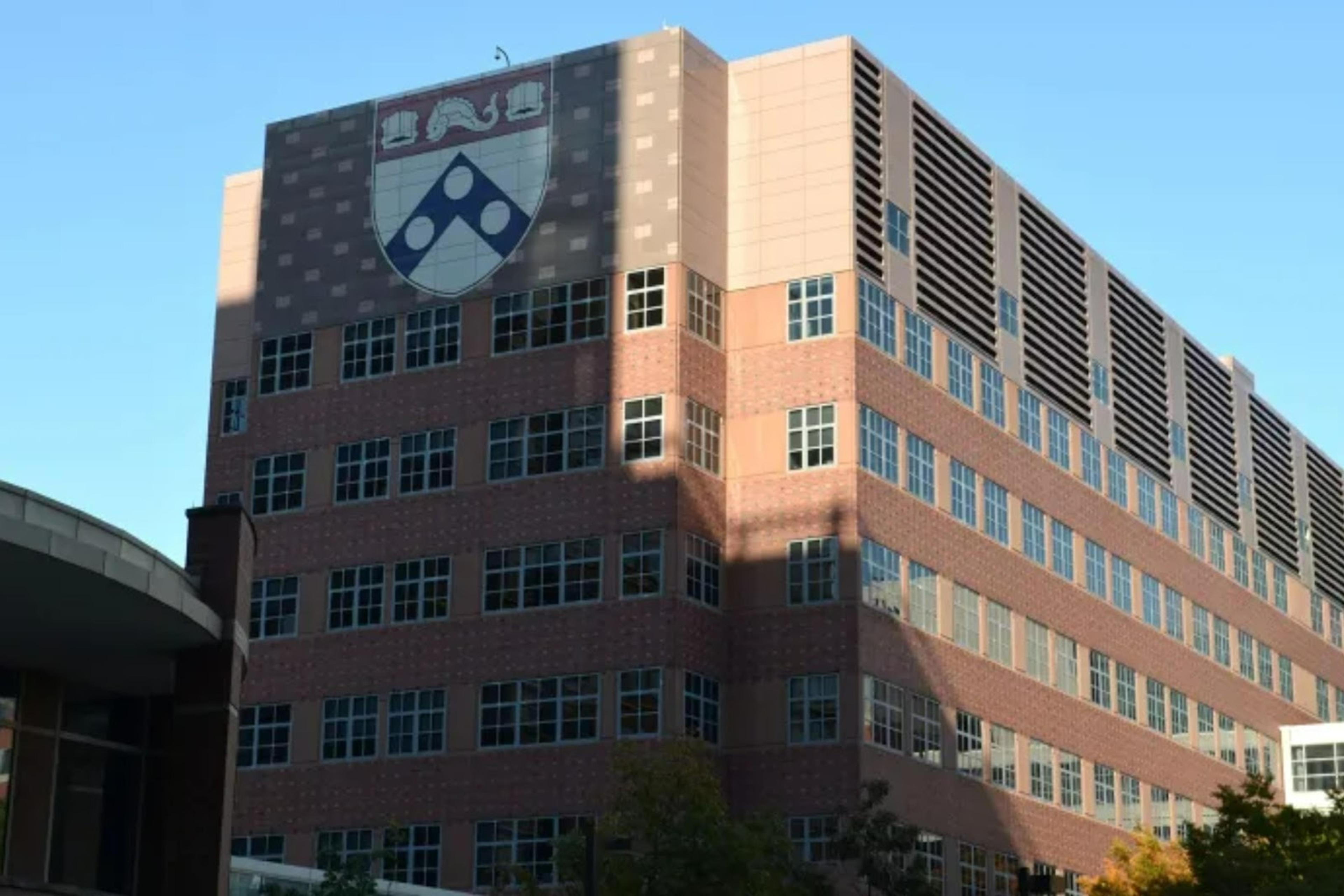
Founded in 1765, the Perelman School of Medicine at the University of Pennsylvania is the oldest medical school in the United States and consistently ranks among the nation’s best. Known for its integrated curriculum, cutting-edge biomedical research, and close ties to leading hospitals like the Hospital of the University of Pennsylvania and CHOP, Perelman prepares students to lead in both clinical medicine and scientific discovery
Perelman School of Medicine’s most recent acceptance rate has not been publicly reported, but historically, it has been 2.4-2.5%, with the number of annual applicants estimated at between 6,000 and 7,000.
Admissions are highly selective, with a focus on academic excellence, intellectual curiosity, and a demonstrated commitment to service and leadership. The school’s strong emphasis on inclusion, innovation, and flexibility makes it a top choice for students from a wide range of backgrounds.
Class Profile – Perelman School of Medicine (Class of 2025-2026)
- GPA Range: 3.25 - 4.00
- MCAT Range: 513 - 528
- MCAT Section Medians:
- CARS: 130
- CPBS: 131
- PSBB: 131
- BBFL: 131
- MCAT Section Medians:
- Incoming Students: 153
For more information on the class profile, see the Perelman School of Medicine’s most recent official report.
Demographics
The incoming class at Perelman reflects a broad range of experiences, backgrounds, and identities. Among the 153 students, there are 78 men and 75 women. The class includes 14% who identify as LGBTQ+, 19% who are first-generation college graduates, and 19% who come from low-income or economically disadvantaged backgrounds. Students range in age from 21 to 28, with an average age of 23.
4. Columbia University Vagelos College of Physicians and Surgeons

Columbia VP&S is one of the most elite medical schools in the US, known for its academic rigor, long-standing history of innovation, and commitment to service in urban health. As the first American medical school to award the MD degree, Columbia has played a pivotal role in shaping modern medical education. Today, it continues that legacy through cutting-edge research, nationally ranked residency placements, and community engagement in neighborhoods like Harlem and Washington Heights.
Columbia VP&S’s acceptance rate is 1.9%.
Admissions are extremely selective, with admitted students demonstrating top-tier academic credentials and a strong record of service, research, and leadership. Students benefit from world-class clinical training at NewYork-Presbyterian Hospital and extensive resources tied to Columbia’s large research ecosystem.
Class Profile – Columbia VP&S (Class of 2028)
- GPA: ~3.94 (Estimated from GPA range of 3.39–4.0)
- MCAT Score: 520–522 (Estimated from MCAT range of 508–528)
- MCAT Score Range: 508–528
- GPA Range: 3.39–4.0
- Total Applicants: 7,291
- Interviews Conducted: 757
- Class Size: 140
For more information on the class profile, see the official Columbia VP&S report.
Demographics
The incoming class at Columbia VP&S reflects academic excellence and a growing focus on inclusion. The class is 51% female and 49% male, with 4% identifying as first-generation college students. Students come from 60 different colleges and represent 32 US states.
5. Duke University School of Medicine

Duke University School of Medicine is known for its innovative, accelerated curriculum. Students complete all pre-clinical coursework in the first year and begin clinical rotations in the second—far earlier than most other programs. In the third year, students pursue research, dual degrees, or global health experiences, making the curriculum uniquely flexible and academically rich.
Duke School of Medicine’s acceptance rate is 4.8% for the Class of 2029.
Admissions are highly competitive, with accepted students demonstrating outstanding academic performance, intellectual curiosity, and leadership potential. Duke’s early clinical exposure, emphasis on research, and strong mentorship culture make it a top choice for students seeking a forward-thinking medical education.
2025 MD Admissions Statistics
- Median GPA: 3.9
- Median MCAT Score: 520
- MCAT Score Range: 511–526
- GPA Range: 3.83–4.0
- Total Applicants: 8,285
- Applications Submitted: 9,234
- Interviews Conducted: 642
- Matriculated: 123
For more information on the class profile, see Duke School of Medicine’s official report
Demographics
The incoming class at Duke represents strong academic diversity across the US. Interviewees represented 138 universities across 47 states, reflecting the program’s broad national reach.
Read: Duke University School of Medicine: Admission Requirements and Application Process
6. Stanford University School of Medicine
Stanford University School of Medicine is one of the most selective medical schools in the country, known for its strong interdisciplinary research, early clinical training, and flexible, student-driven curriculum. Its unique Discovery Curriculum allows students to pursue scholarly concentrations, dual degrees, or advanced research through programs like MSTP and the Berg Scholars Program.
Stanford School of Medicine’s acceptance rate is 1.0%.
Admissions are intensely competitive and holistic, with the school placing strong value on academic excellence, leadership, life experience, and long-term vision. With only 90 seats and nearly 9,000 applicants, Stanford attracts students who are not only top scholars, but also future innovators and changemakers in medicine.
Class Profile – Stanford School of Medicine (Class of 2028)
- Median GPA: 3.94
- GPA Range: 3.68–4.0
- Median MCAT Score: 518
- MCAT Range: 511–525
- Total Applicants: 8,998
- Interviews Conducted: 497
- Class Size: 90
For more information on the class profile, see Stanford School of Medicine’s official report.
Demographics
While detailed demographic data has not been provided, Stanford’s incoming class is selected through a highly holistic process and represents a broad range of backgrounds, experiences, and academic interests. Students train across five clinical sites and benefit from a faculty that includes 7 Nobel laureates and dozens of members of prestigious research academies.
7. University of California-San Francisco School of Medicine
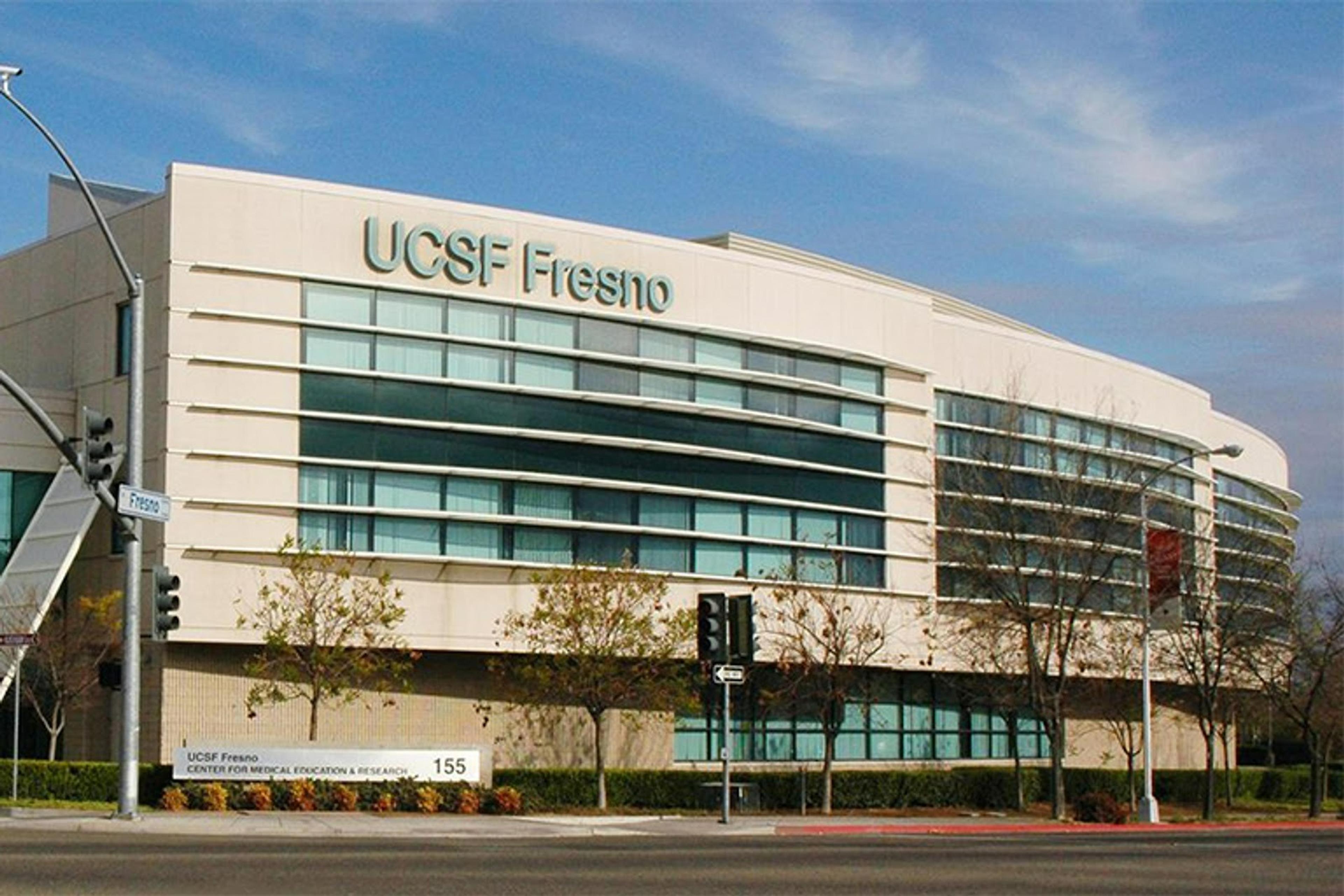
UCSF School of Medicine is one of the most prestigious public medical schools in the United States, consistently ranked among the top for both primary care and research. Its innovative Bridges Curriculum integrates foundational science, clinical care, and inquiry throughout all four years, preparing students to lead in both patient care and medical discovery.
UCSF School of Medicine’s acceptance rate is 1.8%.
Admissions are highly selective, with a strong emphasis on academic achievement, community service, and a demonstrated commitment to underserved populations. The school receives more NIH funding than any other public medical school and gives strong preference to California residents.
Class Profile – UCSF Fall 2025 Admissions
- Median GPA: ~3.87 (estimated from recent class profiles)
- Median MCAT Score: ~515 (estimated; typically in the 90th percentile)
- Total Applicants: 10,300
- Interviews Conducted: 584
- Matriculated: 161
For more information on the class profile, see UCSF School of Medicine’s official report.
Demographics
UCSF’s incoming class is deeply mission-driven and reflects a strong commitment to diversity and public health. The average age at matriculation is 23, and 71% of students are California residents. While full demographic data isn’t publicly detailed, the class is selected to represent a broad range of backgrounds, life experiences, and service-focused goals.
Read: How to Get Into UCSF School of Medicine: Acceptance Rate, Tuition, & Prerequisites
8. Vanderbilt University School of Medicine

Vanderbilt University School of Medicine (VUSM) is consistently ranked among the top medical schools in the U.S., known for its innovative Curriculum 2.0. This flexible, research-focused program emphasizes early clinical exposure, hands-on inquiry, and a deep commitment to community health and academic leadership.
Vanderbilt School of Medicine’s acceptance rate is approximately 6.9%.
Admissions are competitive, with most students bringing strong academic records, meaningful research or service experience, and unique educational backgrounds. Over 70% of students take one or more gap years before matriculation, and many pursue interdisciplinary majors such as Neuroscience, Medicine, Health & Society, or Spanish.
Class Profile
- Median GPA: 3.9
- Median MCAT Score: 520
- Verified Applications Received: 7,477
- Secondary Application Invitations: 5,716
- Interview Invitations: 515
For more information on the class profile, see Vanderbilt School of Medicine’s official report.
Demographics
While complete demographic data is not publicly available, Vanderbilt’s incoming class reflects a wide range of academic and cultural backgrounds. Students come from diverse majors and life paths, with many having taken gap years and engaged in research, service, or global health work before matriculation. The school places a strong emphasis on inclusion, intellectual curiosity, and leadership in healthcare.
9. Washington University School of Medicine

Washington University School of Medicine is known for its academic rigor, world-class research, and a collaborative environment that attracts top students nationwide and internationally. With a median MCAT above the 96th percentile and a small class size of just 124 students, the admissions process is intensely competitive. WashU values not only academic excellence but also diverse life experiences, service, and leadership. Students benefit from a flexible curriculum, top-tier research mentorship, and a strong match rate into elite residency programs. WashU offers unmatched preparation for future leaders in academic medicine, global health, and biomedical discovery.
Washington University School of Medicine’s acceptance rate is approximately 2.0%.
Admissions are highly selective, with successful applicants demonstrating top-tier academic credentials alongside a strong track record of leadership, research, and service. The school’s flexible curriculum and robust MD/PhD programs make it a top choice for aspiring physician-scientists and academic leaders.
Class Profile – Washington University School of Medicine (Entering Class of 2024)
- Mean GPA: 3.92
- Mean MCAT Score: 519.9
- Mean MCAT total score of 519.19 (96th percentile)
- 5,452 highly qualified applicants; 1,026 interviewed
- 65 women; 59 men
- 105 MD students; 19 MD/PhD students
- Class Size: 124
For more information on the class profile, see Washington University School of Medicine’s official report.
Demographics
WashU’s incoming class represents a broad range of academic interests, life experiences, and service commitments. Students join from across the US and abroad, and the school continues to invest in financial accessibility, mentorship, and a supportive, inclusive environment for future leaders in medicine.
10. Cornell University Weill Medical College
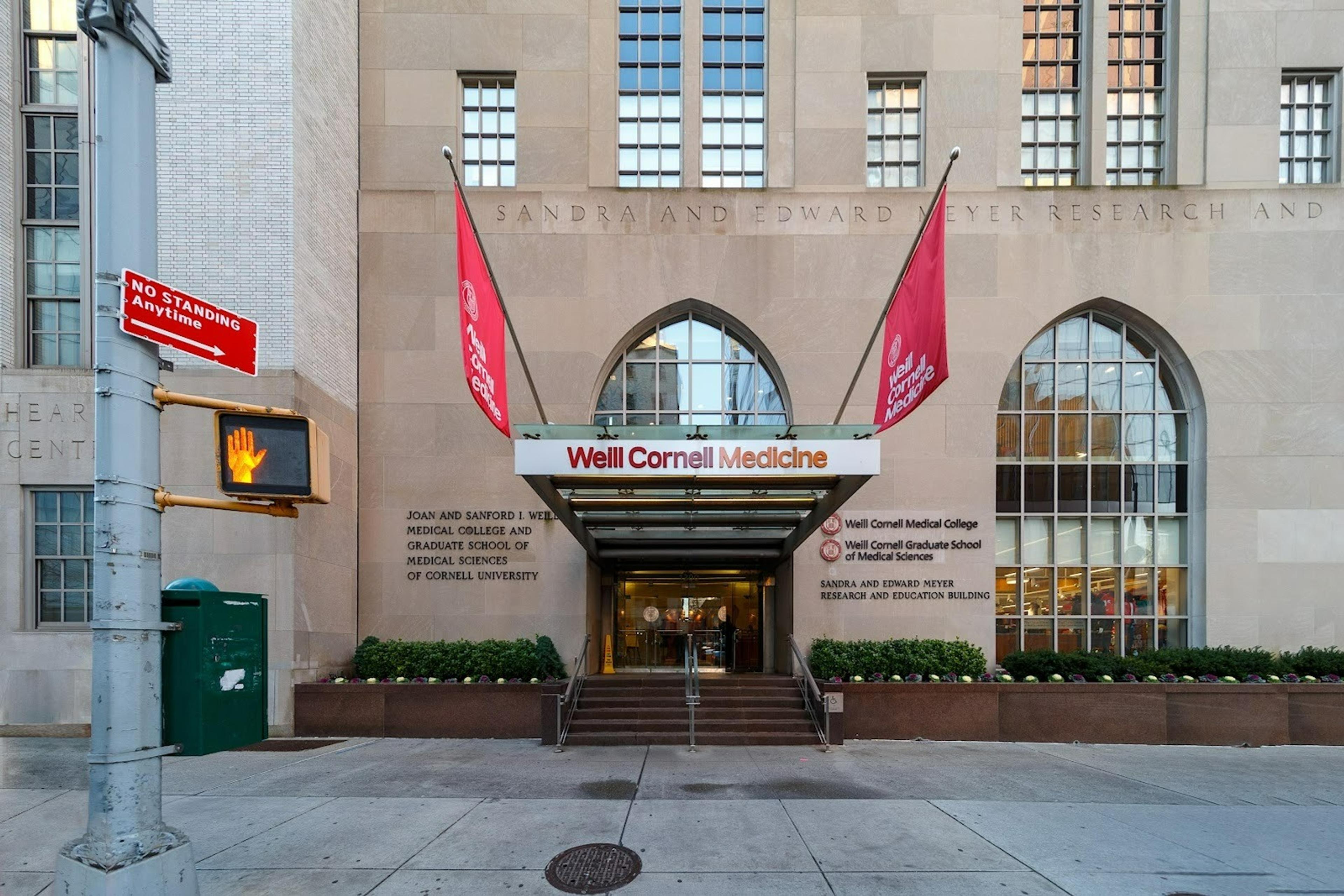
Weill Cornell Medical College is among the most selective medical schools in the U.S., offering a globally diverse, research-driven education in the heart of New York City. The school emphasizes intellectual curiosity, meaningful life experience, and a deep commitment to service through its holistic admissions process and world-class academic offerings.
Weill Cornell Medical College’s acceptance rate is 1.4%.
Applicants are evaluated for academic excellence as well as leadership, research, and personal growth. With robust clinical partnerships, strong financial aid support, and an international student body, Weill Cornell prepares future physicians to lead in academic medicine, public health, and global healthcare innovation.
Read: Cornell Medical School Acceptance Rate — Breakdown & Analysis
11. New York University Grossman School of Medicine

NYU Grossman School of Medicine is one of the most forward-thinking medical schools in the U.S., known for its tuition-free MD program and commitment to educational innovation. Located in the heart of New York City, Grossman offers students access to premier clinical training, groundbreaking research, and a diverse patient population.
NYU Grossman School of Medicine’s acceptance rate is 2.5%.
The admissions process is highly competitive, with students typically presenting near-perfect academic credentials, strong leadership, and a demonstrated commitment to service and discovery. NYU’s tuition-free model attracts top applicants from across the country and around the world.
Class Profile – NYU Grossman School of Medicine (Class of 2024)
- Median GPA: 3.98
- GPA Range (10th–90th Percentile): 3.79–4.0
- Median MCAT Score: 523
- MCAT Range (10th–90th Percentile): 516–527
- Total Applicants: 8,271
- Interviews Conducted: 821
- Accepted 208
- Class Size: 106
- MD: 91
- MD/PhD: 13
- OMS (Oral Maxillofacial Surgery): 2
For more information on the class profile, see NYU Grossman School of Medicine’s official report.
Demographics
The incoming class at NYU Grossman is globally diverse and academically elite. The average age is 23, with students ranging from 20 to 30 years old. The class is 51% men and 49% women, and students speak a wide variety of languages, including Arabic, Bengali, Chinese, French, German, Hebrew, Italian, Spanish, and Ukrainian. Students come from a broad spectrum of backgrounds and regions, reflecting NYU’s international reach and inclusive admissions philosophy.
Read: How to Get Into NYU Medical School (Grossman) — Acceptance Rate, Requirements, & Ranking
12. Yale School of Medicine

Yale School of Medicine is one of the most prestigious and distinctive medical schools in the world. Its unique Yale System of Medical Education eliminates grades and class rankings in the preclinical years, promoting independent learning, intellectual curiosity, and original research. The school is a hub for physician-scientists, public health leaders, and global changemakers.
Yale School of Medicine’s acceptance rate is 5.5%.
Admissions are highly selective, with an emphasis on academic excellence, leadership, and creativity. Yale offers significant research opportunities, a tuition-free fifth year for academic exploration, and extensive dual-degree and fellowship support, making it a top choice for students seeking depth and flexibility in their medical education.
Class Profile – Yale School of Medicine (Class of 2026)
- Cumulative Undergrad GPA: 3.50-3.97 (MIDDLE 60%)
- Cumulative Undergrad Science GPA: 3.78-4.00 (MIDDLE 60%)
- Patient Care Hours: 4,842-15,498 (MIDDLE 60%)
- Class Size: 40
For more information on the class profile, see Yale School of Medicine’s official report.
Demographics
Yale’s incoming class represents a diverse and accomplished cohort of students with a strong interest in research and academic medicine. While full demographic data is not publicly disclosed, the school attracts students from across the country and around the world, many of whom bring backgrounds in public service, advocacy, and interdisciplinary scholarship.
Read: Yale School of Medicine: Your Guide to the MD Admissions
13. Mayo Clinic Alix School of Medicine

Mayo Clinic Alix School of Medicine offers an elite, research-focused medical education across three U.S. campuses: Minnesota, Arizona, and Florida. Students benefit from personalized academic pathways, access to Mayo Clinic’s world-class clinical and research facilities, and a curriculum designed to develop future leaders in medicine and healthcare innovation.
Mayo Clinic Alix School of Medicine’s acceptance rate is 3.4%.
Admissions are highly competitive, with applicants selected for academic excellence, leadership, and a strong commitment to service. Mayo’s emphasis on translational medicine, research integration, and individualized training makes it a top destination for students pursuing academic medicine and clinical leadership.
Class Profile – Mayo Clinic Alix School of Medicine (2025 Admissions)
- Median GPA: 3.95
- Median MCAT Score: 521 (98th Percentile)
- Total Applicants: 5,396
- Interviews Conducted: 712
For more information on the class profile, see Mayo Clinic Alix School of Medicine’s official report.
Demographics
Mayo’s incoming class is known for its academic strength, diverse life experiences, and strong service orientation. Students are drawn from across the U.S. and beyond, and benefit from one of the highest-rated student experiences in the country, including strong wellness programming, mentorship, and academic support.
Read: Mayo Clinic Alix School of Medicine: Admission Requirements and Application Process
14. Northwestern University Feinberg School of Medicine

Northwestern University's Feinberg School of Medicine is a top-ranked medical school located in downtown Chicago, known for its innovation in clinical care, public health, and medical education. Feinberg emphasizes leadership, research, and service, preparing students to make meaningful contributions in a wide range of medical fields.
Feinberg School of Medicine’s acceptance rate is 1.72%.
With one of the most competitive admissions processes in the country, Feinberg looks for students with exceptional academic records and deep involvement in research, service, and teaching. The school’s integrated curriculum, global health programs, and location in a major metropolitan area offer students unmatched opportunities for clinical exposure and interdisciplinary learning.
Class Profile – Feinberg School of Medicine (Entering Class of 2025)
- Median GPA: 3.93
- Median MCAT Score: 521
- Total Applicants: 8,610
- Interviews Conducted: 704
- Class Size: 140
For more information on the class profile, see the Feinberg School of Medicine’s official report.
Demographics
Feinberg School of Medicine fosters a diverse and inclusive environment. The incoming class includes:
- Gender Distribution: 54% Women, 45% Men, 1% Another Gender Identity
- Underrepresented in Medicine (URiM): 15%
- LGBTQ+ Identifying Students: 19%
- Student Athletes: 12%
- Studied Abroad: 33%
- Languages Spoken: Proficiency in 25 languages, including Spanish, Chinese, French, German, Hindi, and Latin.
15. University of Michigan-Ann Arbor Medical School
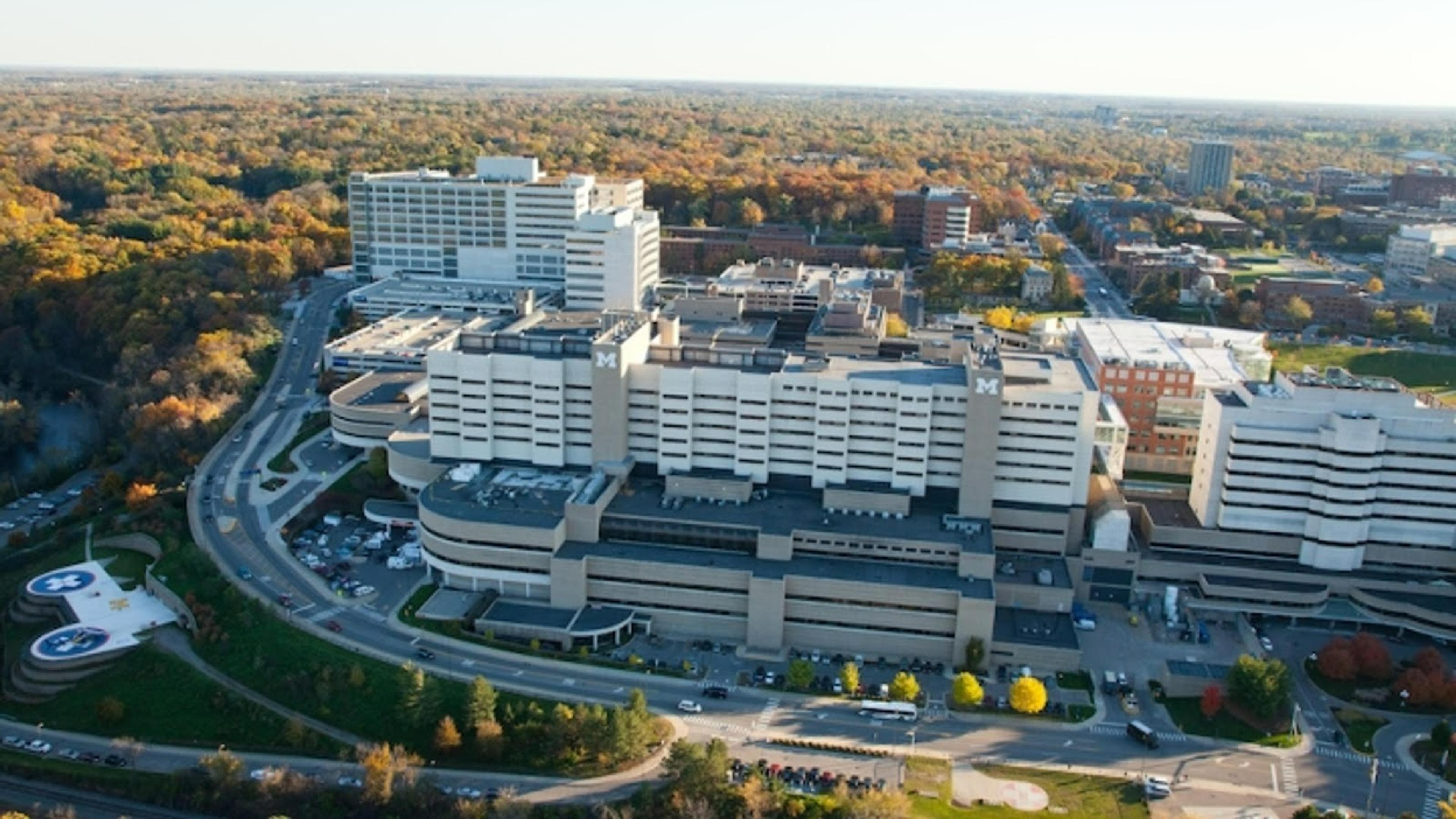
The University of Michigan Medical School offers a collaborative, mission-driven environment supported by one of the largest academic health systems in the country. With access to a top public research university’s extensive resources, students benefit from interdisciplinary learning, strong mentorship, and a deep commitment to leadership in both clinical practice and biomedical research.
University of Michigan Medical School’s acceptance rate is 1.6%.
Class Size & Admissions (2025-2026 Cycle)
- Total Class Size: 171 students
- Total Applicants: 9,338
- Interviewed: 444 applicants
Geographic & Academic Composition
- Michigan Residents: 39.2% of the class
- Non‑Michigan Residents: 60.8%
Academic Metrics
- Average Total GPA: 3.85
- Average Science GPA: 3.81
- Average MCAT Percentile: ~92.6
The University of Michigan Medical School values diversity and inclusion within its student body. Approximately 50.0% of the incoming class is underrepresented in medicine (URiM) by UMMS standards, while 23.8% meets the AAMC definition. Additionally, 23.8% of students identify as LGBTQIA+, and 1.8% have military experience.
Academically, 14.3% of students hold advanced degrees, and 7.7% have completed a formal post-baccalaureate program. The class is diverse in educational backgrounds, with students representing 74 different undergraduate institutions, with the University of Michigan – Ann Arbor being the most represented.
This demographic and academic diversity enhances the learning environment, contributing to a well-rounded and inclusive medical school experience.
16. University of Pittsburgh School of Medicine

The University of Pittsburgh School of Medicine (UPSOM) attracts a highly accomplished and research-focused student body, with strong foundations in clinical exposure, service, and interdisciplinary learning. Through its close affiliation with UPMC, students benefit from exceptional clinical training and access to one of the nation's top academic medical centers.
The University of Pittsburgh School of Medicine’s acceptance rate is 3.6%.
Admissions are competitive and holistic, with an emphasis on academic excellence, research experience, and a demonstrated commitment to service. The school offers robust opportunities in global health, translational medicine, and dual-degree pathways.
Class Profile – University of Pittsburgh School of Medicine (Class of 2024)
- Median GPA: 3.83
- Median MCAT Score: 515
- Total Applicants: 8,259
- Interviews Conducted: 916
- Class Size: 148
For more information on the class profile, see the University of Pittsburgh School of Medicine’s official report.
17. University of Washington School of Medicine
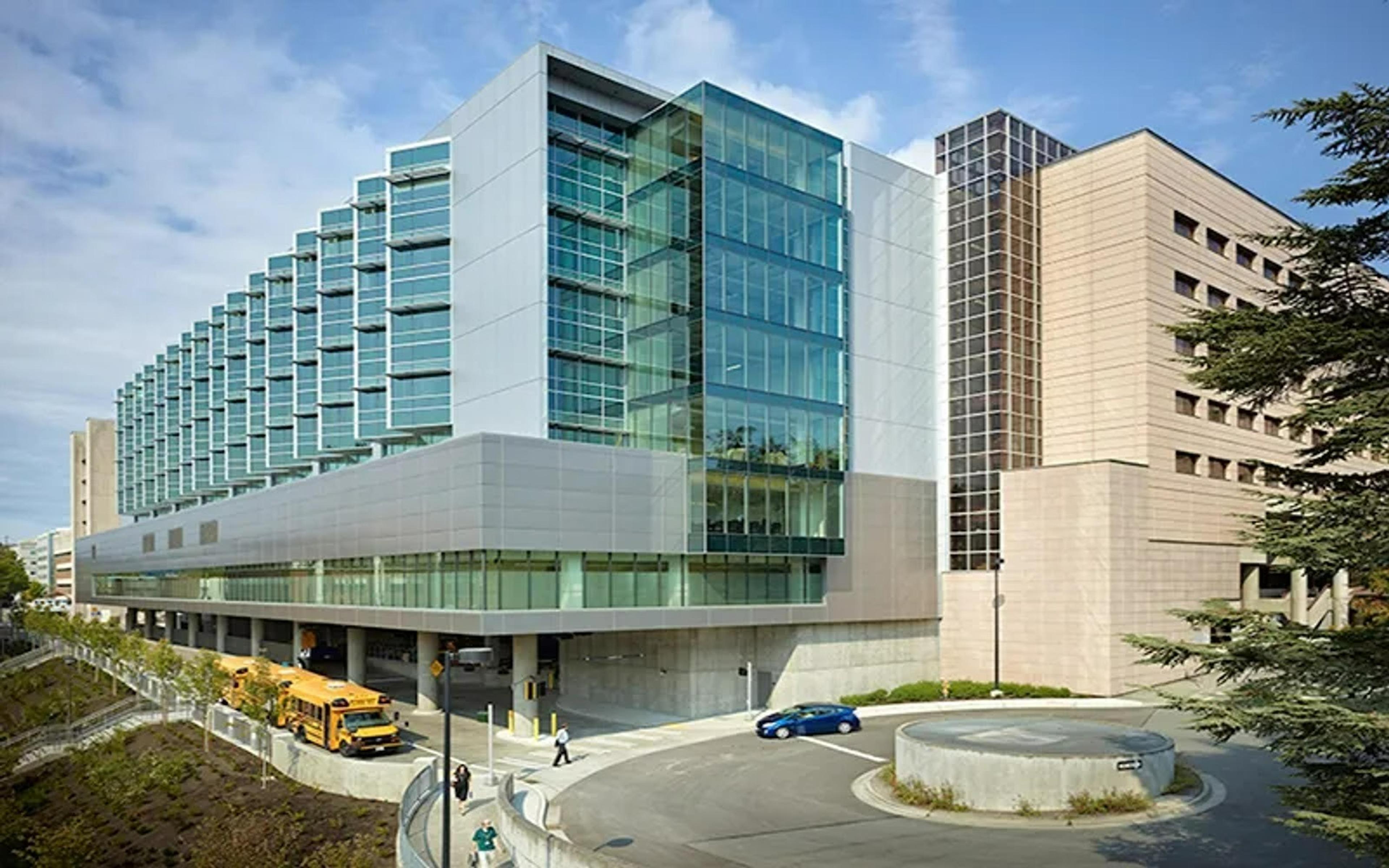
The University of Washington School of Medicine (UWSOM) is the only publicly funded medical school serving the five-state WWAMI region: Washington, Wyoming, Alaska, Montana, and Idaho. With a strong focus on rural health, primary care, and regional workforce development, UWSOM offers students a distributed training model across diverse clinical sites in the Pacific Northwest.
The overall acceptance rate is approximately 5.3% (280 enrolled out of 5,275 applicants).
Class Size & Admissions (Entering Class of 2025 (MD Program))
- Total Applicants: 5,275 applied to the MD program
- Interviewed: 715 applicants were interviewed
- Total Matriculated: 280 students enrolled in the first‑year class
Demographics
The University of Washington School of Medicine values diversity and regional representation. The class includes students aged 21–41, with 7.5% enrolling directly after undergrad, and 18.6% being first-generation college students. Additionally, 1.1% have military experience, and 22.9% come from rural counties, reflecting the school’s commitment to underserved areas.
Geographically, the school prioritizes the WWAMI region, with the majority of students from:
- Washington: 143
- Wyoming: 20
- Alaska: 30
- Montana: 30
- Idaho: 40
- Out-of-region: 17
The class is diverse, with 68 Asian, 15 Black/African American, 26 Latinx/Hispanic, and 175 White students, along with smaller numbers of Native Hawaiian/Pacific Islander and American Indian/Alaska Native students. This composition supports the school’s goal to foster a diverse and inclusive learning environment.
For more information on the class profile, see the University of Washington School of Medicine’s official report.
18. Icahn School of Medicine at Mount Sinai

Icahn School of Medicine at Mount Sinai is one of the most research-intensive and socially conscious medical schools in the country. With a mission rooted in health equity and scientific excellence, the school prepares students to lead in both clinical care and medical innovation. Located in New York City, Mount Sinai offers hands-on training, access to world-class faculty, and unmatched exposure to diverse patient populations.
For the 2025 entering class, Icahn School of Medicine received 9,149 MD/MD‑PhD applications and conducted 910 interviews. It matriculated 118 MD students and 10 MD‑PhD students.
- The class is 54% women, with a mean age of 23 (range 20–39)
- First‑generation college students: ~14%
- Students with military experience: ~2%
- Students who have taken two or more gap years: ~33%
- The class represents 52 undergraduate schools, and students speak 20+ languages.
- 35% of students plan to practice in underserved areas, consistent with the school’s mission.
For more information on the class profile, see Icahn School of Medicine’s official report.
19. University of California-Los Angeles David Geffen School of Medicine
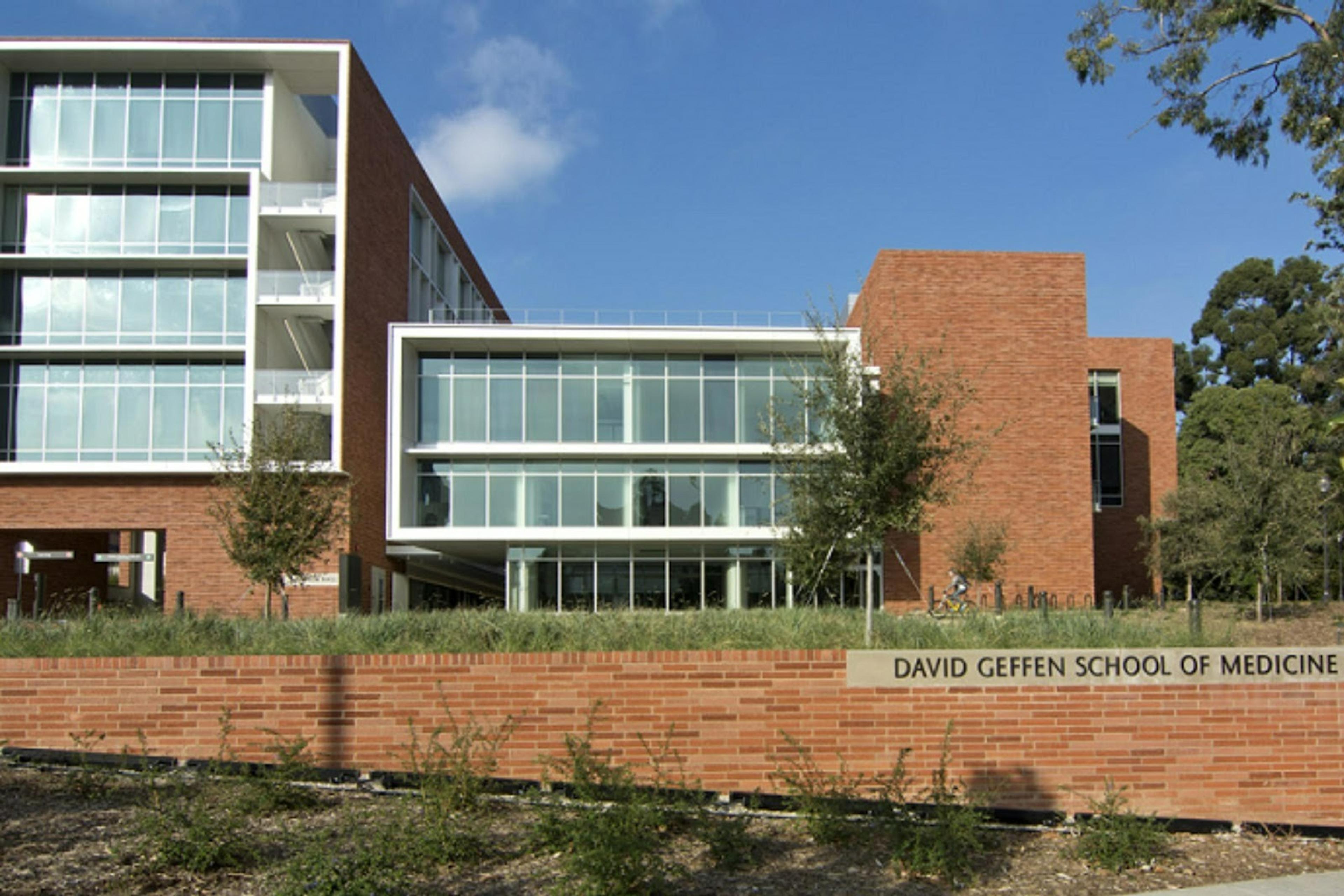
The David Geffen School of Medicine at UCLA is incredibly competitive, with an acceptance rate of around 1.5–2.4% in recent years. This low rate highlights the high number of applicants compared to the small class size, making it one of the most selective medical schools in the U.S.
Class Size & Application Data
- Class Size: Approximately 177 matriculants (typical of recent cycles, including 2024 entering class data).
Note: The school does not currently publish official median GPA or MCAT values on its institutional admissions page
Demographics & Diversity
While the medical school does not post a full official breakdown on its public website, secondary reporting suggests the incoming class typically reflects:
- Strong gender diversity (often around or above half women applicants).
- Representation of underrepresented minorities is consistent with national medical school trends.
- A mix of in‑state and out‑of‑state students, given UCLA’s status as a public medical school with a national applicant pool.
Read: UCLA Medical School: Application & Program Overview
20. University of Chicago Pritzker School of Medicine
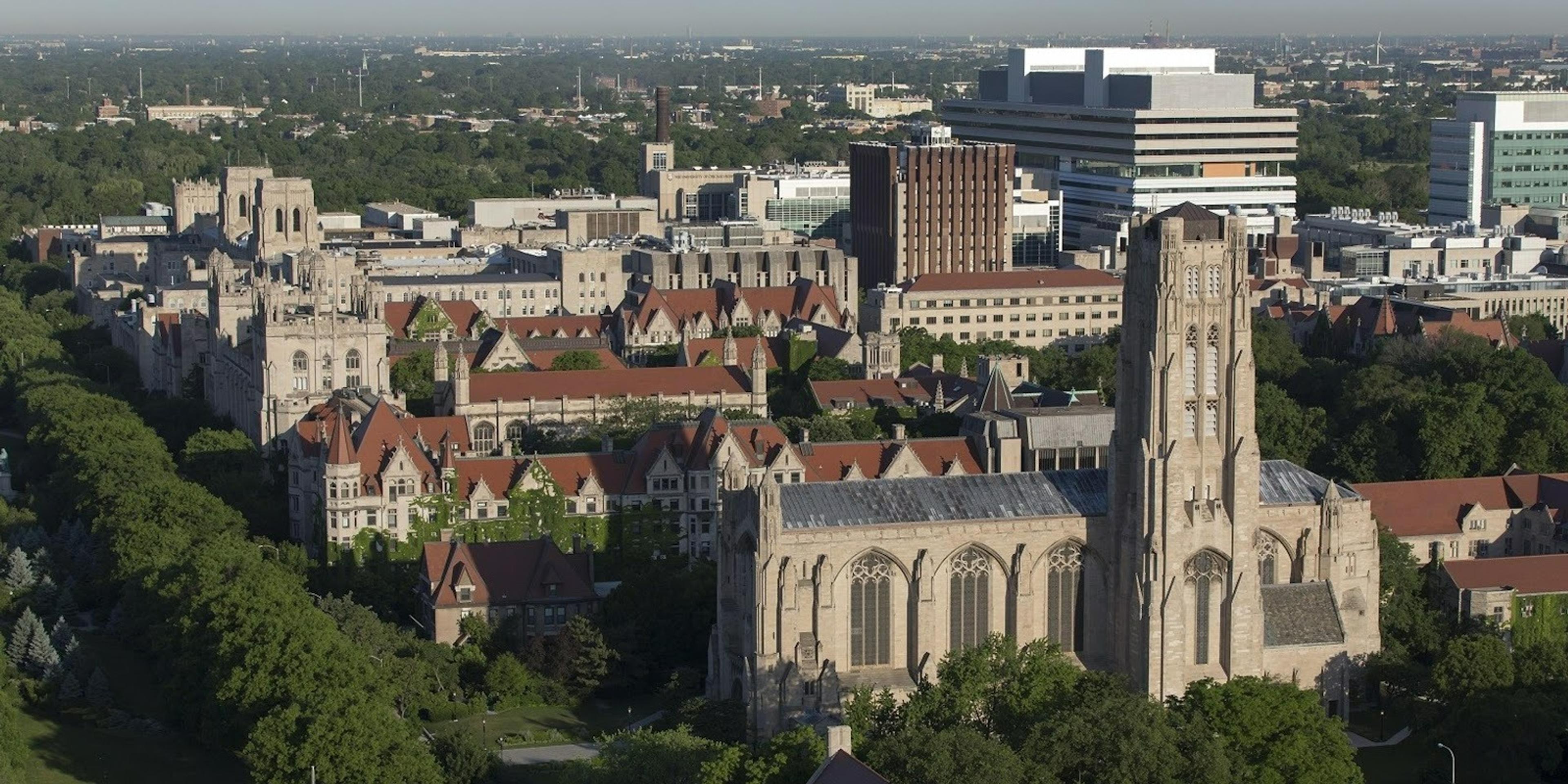
The University of Chicago Pritzker School of Medicine continues to be one of the most selective medical schools in the nation, emphasizing academic excellence, research, and diverse intellectual backgrounds.
Admissions Competitiveness:
Pritzker attracts a highly competitive applicant pool. In the most recent cycle, over 6,400 applicants competed for 91 available seats, resulting in an admission rate of around 1.4%, making it extremely selective.
Class Size & Composition:
- MCAT Score Range: 505–527
- Cumulative GPA Range: 3.4–4.0
- Science GPA Range: 3.2–4.0
- Class Size: 91 students (81 MD + 10 MD/PhD).
- Students represent 50 different undergraduate institutions
For more information on the class profile, see the University of Chicago Pritzker School of Medicine’s official report.
Demographics
The University has a diverse class, with 86% of students coming from out of state and about 1% being international. Additionally, 84% of students took one or more gap years between college and medical school, bringing a variety of experiences and perspectives to the program.
Admission Requirements for T20 Medical Schools
As mentioned above, admission to T20 medical schools is highly competitive; applicants are required to meet strict academic standards and demonstrate their commitment to and aptitude for medicine. The application process is truly holistic, and as such, admission committees will consider your:
- Academic record, with a focus on strong academic performance, including maintaining a high GPA and MCAT score
- Standardized test scores (such as the MCAT)
- Letters of recommendation
- Personal statement
- Interview performance
- Secondary essays
- A strong foundation in basic science courses as these are essential for eligibility and success during medical training
While a commitment to your academics is foundational to your med school application, your experiences outside of the classroom are just as important. Think about all the ways you’ve developed your skills: you might have worked your way through school, or participated in student leadership opportunities in clubs, or served your community, or shadowed physicians…the list goes on and on. While all experience is good experience, remember that research and clinical experience are often experiences that can set applicants apart, as they offer many opportunities for students to develop their competencies. Remember to take time to reflect on what you’ve learned from these experiences; be sure to showcase your unique perspectives and skills to stand out among the highly competitive pool of applicants.
The Benefits of Attending a T20
- Quality of Education: T20 medical schools typically have renowned faculty members who are experts in their fields. As a top-ranked medical school, they work hard to provide high-quality education and training, ensuring that students receive a strong foundation in medical knowledge and skills.
- Research Opportunities: These prestigious medical schools often have robust research programs. Students at the best med schools have the chance to work on cutting-edge medical research, contribute to scientific advancements, and potentially get published in respected journals.
- Clinical Training: T20 medical schools often have access to some of the best hospitals and healthcare facilities. This allows students to gain valuable clinical experience and exposure to a diverse range of medical cases. Additionally, affiliations with medical centers enhance the academic experience and practical training for medical students.
- Networking Opportunities: Attending a T20 medical school means being surrounded by high-achieving peers and faculty. Building connections with such a network can open doors to various opportunities throughout a student’s career.
- Reputation and Prestige: The reputation of T20 medical schools can positively impact a graduate’s professional life. It may lead to academic achievements and increased recognition and respect from employers, patients, and colleagues.
- Access to Resources: These medical schools typically offer state-of-the-art facilities, libraries, and other resources that enhance the learning experience and medical degree.
- Residency Placement: T20 medical schools often have strong connections with top residency programs. Graduating from such an institution may increase the likelihood of securing a competitive residency position.
- Mentorship and Guidance: With top-tier faculty, students can benefit from valuable mentorship and career guidance, helping them make informed decisions about their medical career paths.
- Exposure to Diversity: T20 medical schools often attract a diverse group of students from various backgrounds, fostering a multicultural and enriching learning environment.
- Opportunities for Specialization: These schools may offer a broader range of medical specialties and subspecialties, allowing students to explore various areas of interest.
Read: The Ultimate Guide to the Medical School Application Process
Potential Cons of Attending a T20
Cost
T20 universities are often prestigious private institutions with higher tuition fees compared to public universities or lower-ranked private colleges. The cost of attendance, including tuition, fees, housing, and other expenses, can be substantial and may lead to significant student debt.
Large Class Sizes
Some T20 universities have large student populations, which can result in large class sizes. This may lead to less individual attention from professors and teaching assistants, making it harder to engage in meaningful discussions in classes or get personalized academic support.
High-Stress, Impersonal Environment
The competitive nature of T20 universities and the desire to excel can create a high-stress environment. This stress may affect students' mental health and well-being. With large class sizes and a focus on research, some T20 universities may prioritize faculty research over teaching. As a result, some professors may be less accessible to students outside of the classroom.
Overemphasis on Brand Name
Attending a T20 university is prestigious, but it's essential to remember that the brand name alone of a great school doesn't guarantee success. Your personal dedication, work ethic, and passion for your field of study matter just as much.
How to Choose the Right T20 (or Other) Medical School for You
When selecting a medical school, it’s important to consider more than just the rankings. Think about how each school fits your academic interests, career goals, and personal preferences. Take time to explore their curriculum, research opportunities, and clinical training, but also dive into campus life. Visit schools, talk to current students, and attend information sessions to truly understand the environment.
Location also plays a huge role. Do you want to be in a bustling city or a quieter suburban area? Staying close to home or being willing to move across the country can shape your experience, so take it into account when making your decision.
When applying, make sure to highlight your academic achievements, research experience, and a strong commitment to service. Show your passion for medicine, and demonstrate you’re ready to take on its challenges.
Campus Life and Facilities
T20 medical schools don’t just provide excellent academic opportunities; they offer state-of-the-art facilities, from labs and simulation centers to renowned hospitals. Plus, the vibrant campus life means plenty of opportunities for growth outside the classroom, whether through student groups or cultural events.
Curriculum and Coursework
T20 schools offer a rigorous curriculum that gives you a solid foundation in medicine, while also allowing room for elective courses and research projects. Many schools also offer early patient interactions, helping you get a head start in developing hands-on clinical skills.
Faculty and Research Opportunities
The faculty at T20 medical schools are experts in their fields, offering valuable mentorship and guiding you through cutting-edge research opportunities. Plus, partnerships with top hospitals mean you’ll gain practical experience working alongside healthcare professionals.
Student Support Services
Medical school can be tough, but the support services at T20 schools are designed to help you succeed. Whether it’s academic advising, counseling, or career coaching, these resources ensure you’re well-supported on your journey to becoming a doctor.
Cost of Attendance
Attending a T20 medical school can be costly, with tuition and fees ranging from $50,000 to $70,000 per year. U.S. News rankings often influence financial expectations for prospective students, as top-ranked schools tend to have higher tuition costs. However, most schools offer various financial aid options, including scholarships, grants, loans, and work-study programs, to help students finance their education. It is essential to explore your financial aid options and plan your budget carefully to avoid any financial hardship during your medical school years.
The Bottom Line
T20 medical schools stand at the pinnacle of medical education in the U.S., providing world-class training and research opportunities that pave the way for future leaders in medicine. While the path to admission and success can be demanding, the rewards are significant, offering not only top-tier education but invaluable connections that shape your career. When deciding where to apply, it’s crucial to consider how your strengths, goals, and passions align with the school’s mission and values. Choose wisely, as the right fit can set the foundation for your future in healthcare.
Work With Me To Get Into Your Dream Medical School
Want help deciding which med schools to target, or how to make your application T20-worthy? I’ve completed thousands of advising appointments with college students, taking an individualized approach to each and every applicant that I work with. I’m dedicated to providing career resources and mentorship for all students, especially those from marginalized backgrounds.
Together, we can take a purpose-driven approach to your application process, highlighting your skills and interests in a way that demonstrates alignment with the qualities and competencies that schools are looking for.
Book a free intro call on my profile. Let’s get started.
Read next:
- The Ultimate Guide to the Medical School Application Process
- How Many Medical Schools Should I Apply To? A Strategic Approach
- The Ideal Number of Clinical Hours for Medical School Applications
FAQs
Is Fordham a Top 20 Law School?
- Fordham Law School is widely recognized as one of the top law schools in the United States, consistently ranking among the top 20 law schools. This prestigious school offers strong academic programs, along with valuable extracurricular activities like legal clinics and internships. For students interested in practicing law, particularly in the heart of New York City, Fordham provides unparalleled opportunities for networking and career growth. It’s also an excellent choice for those looking to specialize in areas like health law, given its proximity to major medical centers and healthcare law firms.
What LSAT Score is Needed for Fordham Law?
- For aspiring lawyers aiming to attend Fordham Law, the typical LSAT score required is competitive, with the median LSAT score being around 165. Most accepted students fall within a range of 159 to 170, aligning with Fordham’s standing as a top 20 law school. Students interested in health sciences or primary care law should aim for a higher score, as these specialized fields are highly competitive. Achieving a strong LSAT score will help aspiring doctors and those focused on healthcare law stand out in the application process.
Is Fordham Law a Good School?
- Yes, Fordham Law is a great school for students interested in a legal career, especially for those seeking a blend of academic excellence and real-world experience. Students also benefit from a variety of extracurricular activities that enhance their legal education. For those pursuing health sciences or specializing in healthcare law, Fordham offers strong programs and connections to top medical centers, ensuring students receive hands-on experience in their field of interest.
What is the #1 Law School in the USA?
- The #1 law school in the USA is Harvard University, consistently ranked as the top law school globally. Harvard Law provides unmatched resources for students interested in shaping the future of law and policy. It is particularly known for its leadership in health sciences law and has numerous connections to medical centers and healthcare law firms. With its prestigious reputation, rigorous academic programs, and abundant opportunities for extracurricular activities, Harvard remains the go-to choice for those pursuing careers in law and primary care law.

Written by Krysta
5.0
(47)
Being a first-generation college student—let alone the first person in my family to go to GRADUATE school—was HARD. And while it’s impossible for me to go back in time and share the insights I’ve gained with my former freshman self, it’s not too late for me to share them with YOU. Over the last six years, I’ve worked with students to reach their most ambitious goals, helping them to take their first steps as future physicians, PAs, researchers, engineers, public health professionals, data scientists, business professionals, and leaders in countless industries. My extensive experience with STEM students has resulted in my applicants landing at medical and graduate school programs all across the country, and even around the world, including (but not limited to!) the University of Michigan, Tulane, Vanderbilt, Case Western, Duke, UC-Berkeley, MIT, Harvard, and Johns Hopkins. But before that, I was a student just like you: determined but overwhelmed; goal-oriented but not sure where to start. After starting college as an architecture major, I switched to business before realizing that MY purpose was to help others pursue THEIRS. After earning my master’s degree from Western Michigan University, I began working in higher education; my experience as a mentor, an advisor, an instructor, and a coach has taught me how to help people tell their stories effectively, gain experience intentionally, and make their way into spaces that THEIR freshman year selves had only dreamed of.
Krysta has helped clients get into organizations like:
Browse hundreds of expert coaches
Leland coaches have helped thousands of people achieve their goals. A dedicated mentor can make all the difference.


















